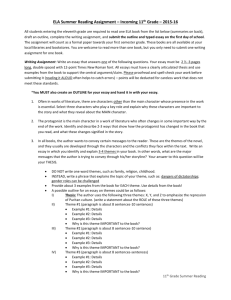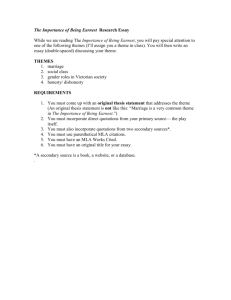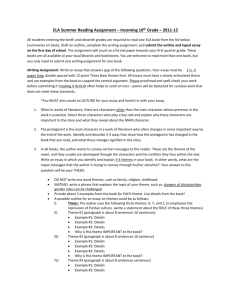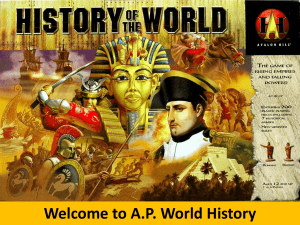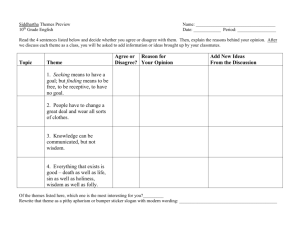Summer Reading Assignment – 2011
advertisement
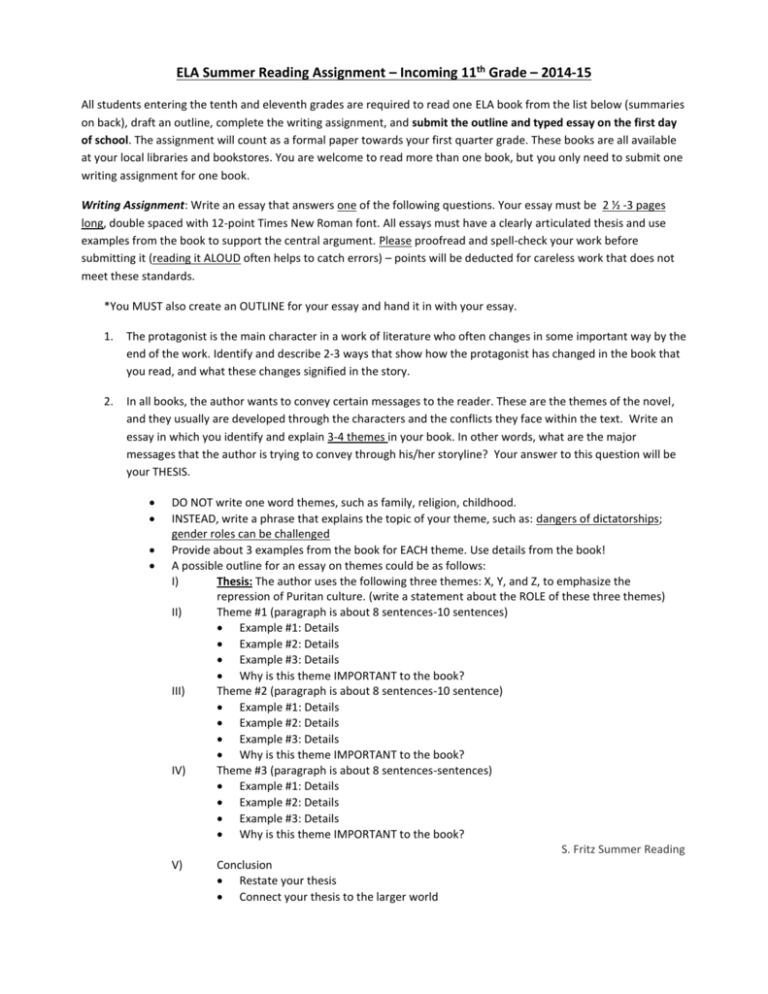
ELA Summer Reading Assignment – Incoming 11th Grade – 2014-15 All students entering the tenth and eleventh grades are required to read one ELA book from the list below (summaries on back), draft an outline, complete the writing assignment, and submit the outline and typed essay on the first day of school. The assignment will count as a formal paper towards your first quarter grade. These books are all available at your local libraries and bookstores. You are welcome to read more than one book, but you only need to submit one writing assignment for one book. Writing Assignment: Write an essay that answers one of the following questions. Your essay must be 2 ½ -3 pages long, double spaced with 12-point Times New Roman font. All essays must have a clearly articulated thesis and use examples from the book to support the central argument. Please proofread and spell-check your work before submitting it (reading it ALOUD often helps to catch errors) – points will be deducted for careless work that does not meet these standards. *You MUST also create an OUTLINE for your essay and hand it in with your essay. 1. The protagonist is the main character in a work of literature who often changes in some important way by the end of the work. Identify and describe 2-3 ways that show how the protagonist has changed in the book that you read, and what these changes signified in the story. 2. In all books, the author wants to convey certain messages to the reader. These are the themes of the novel, and they usually are developed through the characters and the conflicts they face within the text. Write an essay in which you identify and explain 3-4 themes in your book. In other words, what are the major messages that the author is trying to convey through his/her storyline? Your answer to this question will be your THESIS. DO NOT write one word themes, such as family, religion, childhood. INSTEAD, write a phrase that explains the topic of your theme, such as: dangers of dictatorships; gender roles can be challenged Provide about 3 examples from the book for EACH theme. Use details from the book! A possible outline for an essay on themes could be as follows: I) Thesis: The author uses the following three themes: X, Y, and Z, to emphasize the repression of Puritan culture. (write a statement about the ROLE of these three themes) II) Theme #1 (paragraph is about 8 sentences-10 sentences) Example #1: Details Example #2: Details Example #3: Details Why is this theme IMPORTANT to the book? III) Theme #2 (paragraph is about 8 sentences-10 sentence) Example #1: Details Example #2: Details Example #3: Details Why is this theme IMPORTANT to the book? IV) Theme #3 (paragraph is about 8 sentences-sentences) Example #1: Details Example #2: Details Example #3: Details Why is this theme IMPORTANT to the book? S. Fritz Summer Reading V) Conclusion Restate your thesis Connect your thesis to the larger world 11th Grade ELA analyzes the clash between individual and society. The nature of these conflicts varies as the individual struggles to assert his/her sense of self in difficult environments. The books below each have strong characters and character development and offer the reader an opportunity to consider how different individuals are accepted (or not) by society. The Blind Assassin by Margaret Atwood In Cold Blood by Truman Capote The Great Gatsby by F. Scott Fitzgerald The Appointment by Herra Muller Death with Interruptions by Jose Saramago Book Summaries – 11th Grade The Blind Assassin by Margaret Atwood – The book opens with these simple, resonant words: "Ten days after the war ended, my sister Laura drove a car off a bridge." They are spoken by Iris, whose account of her sister's death in 1945 is followed by an inquest report proclaiming the death accidental. But just as the reader expects to settle into Laura’s story, the author introduces a novel-within-a-novel. Entitled The Blind Assassin, it is a science fiction story told by two unnamed lovers who meet in dingy backstreet rooms. Brilliantly weaving together such seemingly disparate elements, Atwood creates a world of astonishing vision and unforgettable impact. In Cold Blood by Truman Capote – Controversial and compelling, In Cold Blood reconstructs the murder in 1959 of a Kansas farmer, his wife and children. Capote's comprehensive study of the killings and subsequent investigation explores the circumstances surrounding this terrible crime and the effect it had on those involved. At the centre of his study are the amoral young killers Perry Smith and Dick Hickcock, who, vividly drawn by Capote, are shown to be reprehensible, yet entirely and frighteningly human. The Great Gatsby by F. Scott Fitzgerald – Jay Gatsby is the man who has everything. But one thing will always be out of his reach...Everybody who is anybody is seen at his glittering parties. Day and night his Long Island mansion buzzes with bright young things drinking, dancing and debating his mysterious character. For Gatsby - young, handsome, fabulously rich - always seems alone in the crowd, watching and waiting, though no one knows what for. Beneath the shimmering surface of his life he is hiding a secret: a silent longing that can never be fulfilled. And soon this destructive obsession will force his world to unravel. The Appointment by Hera Muller – The hardships and humiliations of Communist Romania are on display in this novel by the winner of the European Literature Prize. The narrator, an unnamed young dress-factory worker of the postWWII generation, has been summoned for questioning by the secret police; she has been caught sewing notes into men's suits destined for Italy, with the desperate message "marry me" along with her address. Accused of prostitution in the workplace (and told she is lucky the charge is not treason), she loses her job, and her life becomes subject to the whims of Major Albu, who summons her for random interrogation sessions. Her major preoccupation is holding on to her sanity. This is a nearly impossible feat in a society where opportunity is limited, trust is a commodity as scarce as decent food or shoe leather, and even sinister Party henchmen are shown to be trapped in a ridiculous charade. Death with Interruptions by Jose Saramago – What happens when the grim reaper decides there will be no more death? On the first day of the New Year, no one dies. This of course causes stress among politicians, religious leaders, morticians, and doctors. Among the general public, on the other hand, there is initially celebration—flags are hung out on balconies, people dance in the streets. They have achieved the great goal of humanity: eternal life. Then reality hits home—families are left to care for the permanently dying, life-insurance policies become meaningless, and funeral parlors are reduced to arranging burials for pet dogs, cats, hamsters, and parrots. Death sits in her chilly apartment, where she lives alone with scythe and filing cabinets, and contemplates her experiment: What if no one ever died again? What if she became human and were to fall in love? S. Fritz Summer Reading
